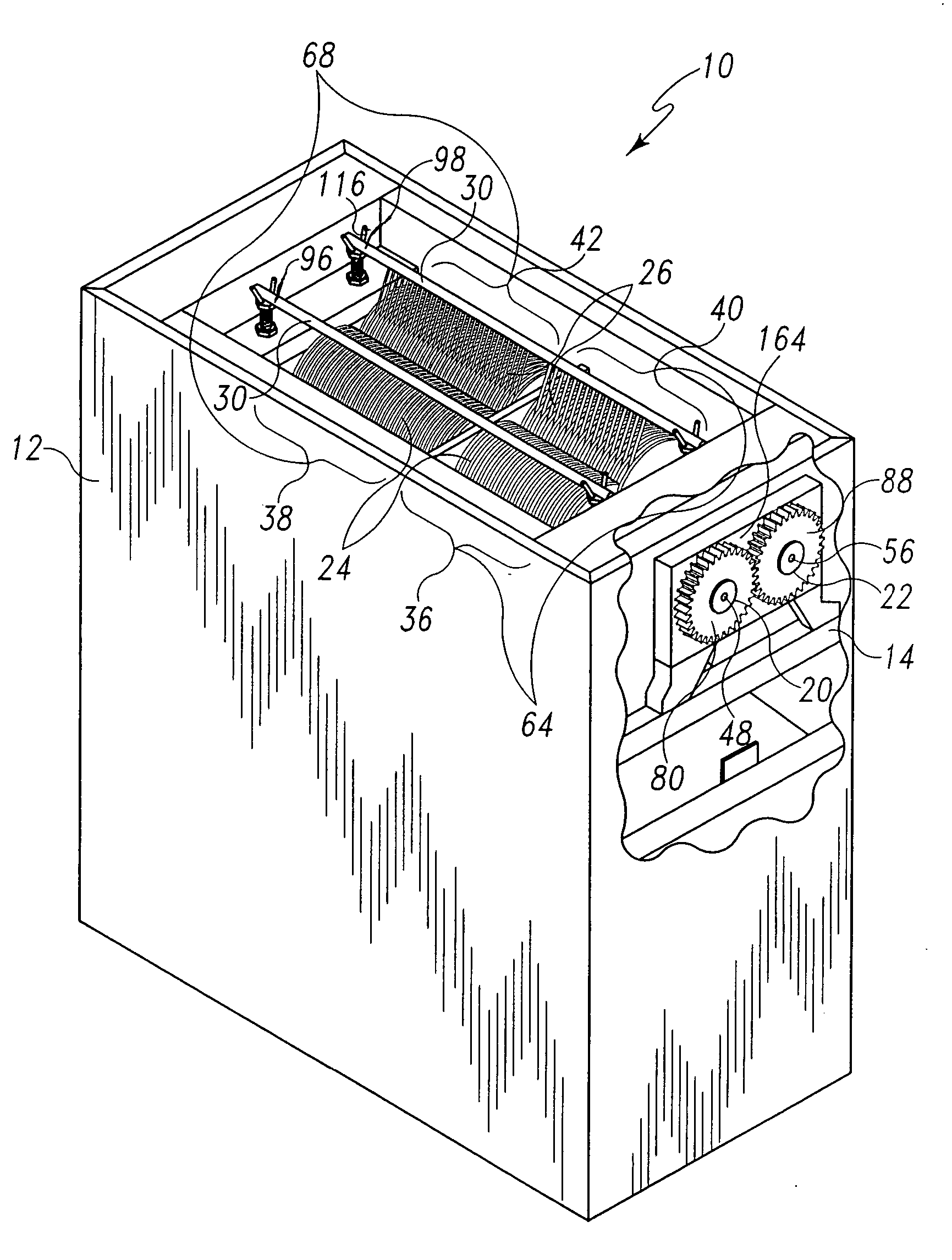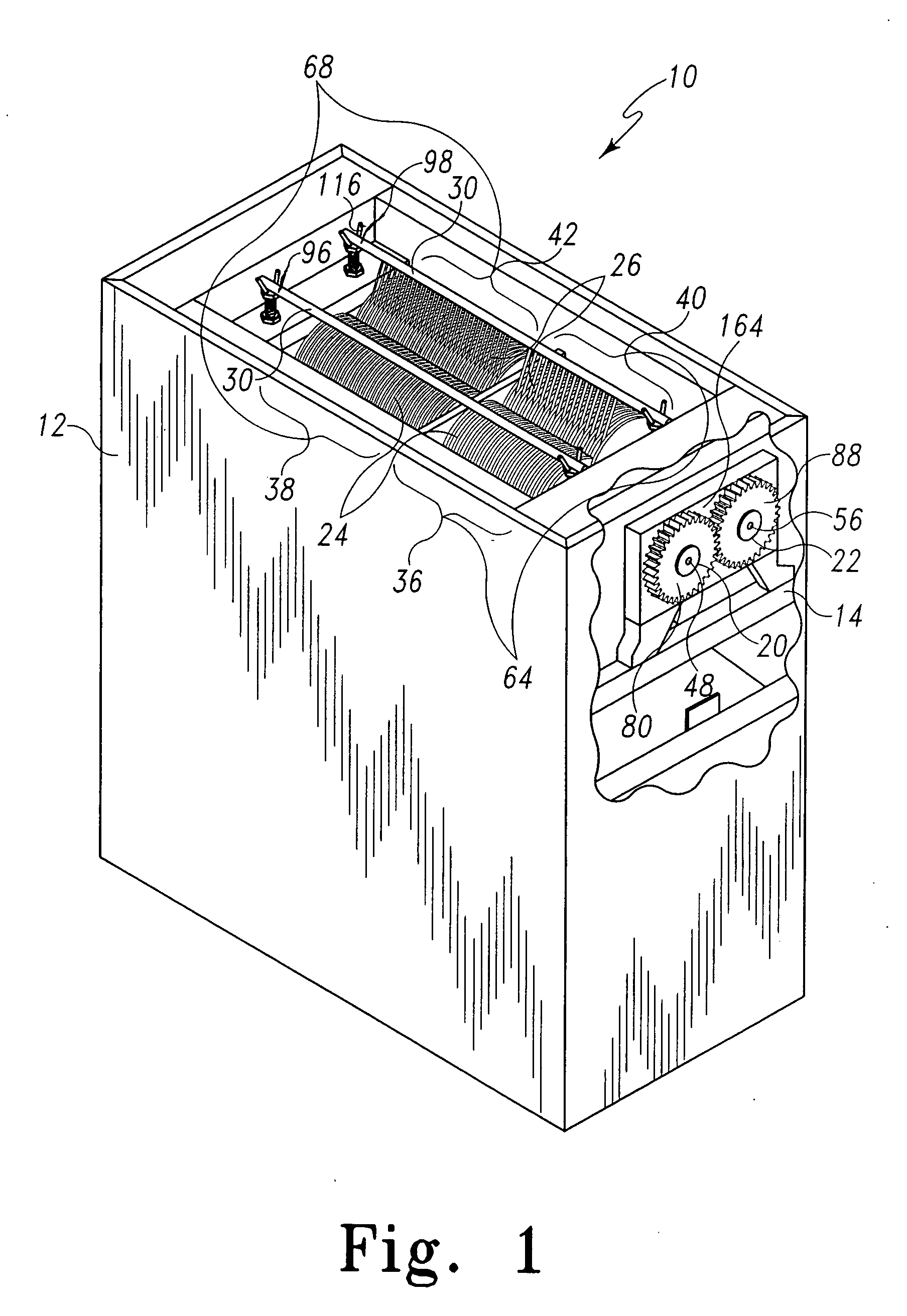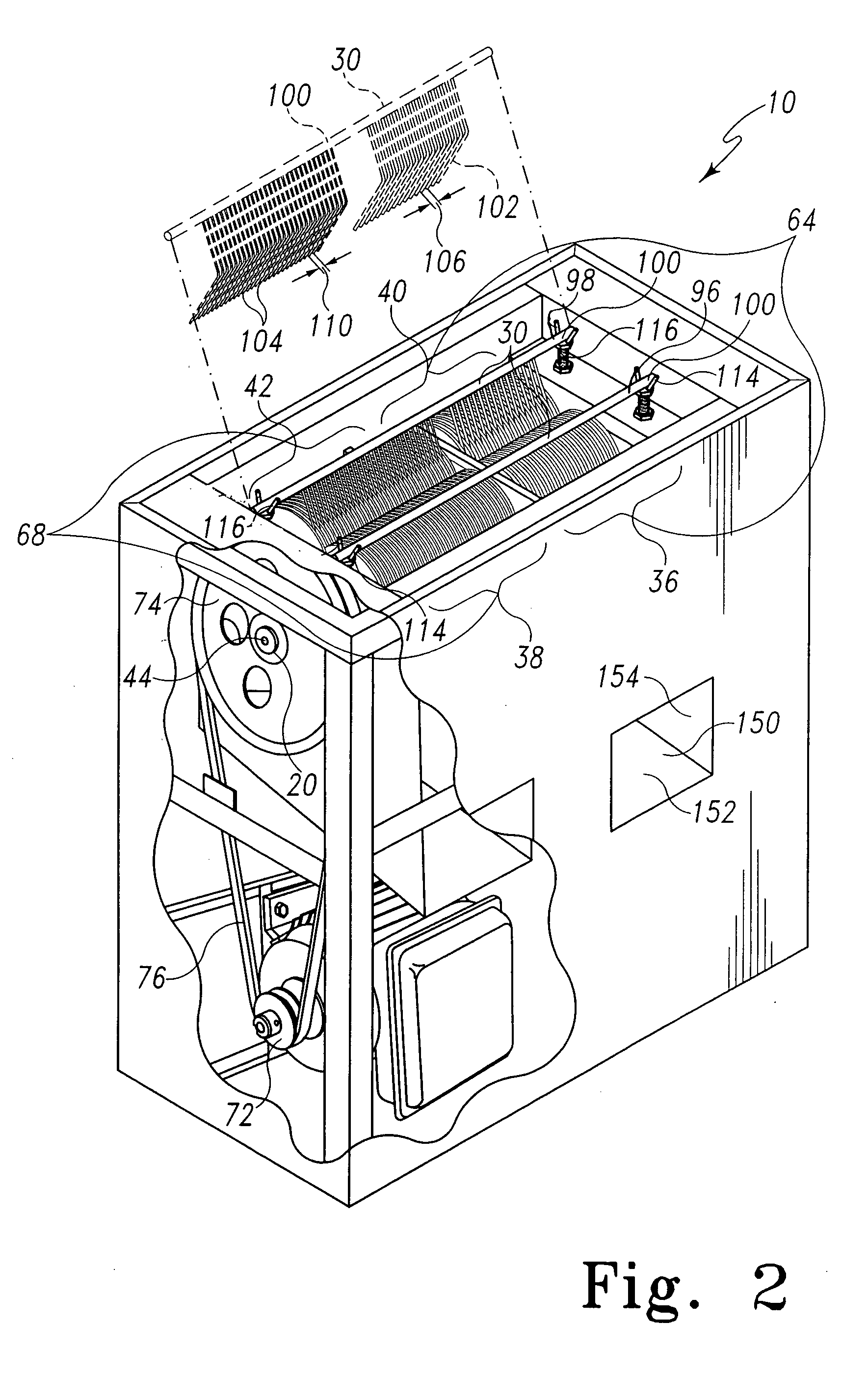Food processing apparatus for forming strips, slices and cubes
a technology of food processing apparatus and cutting machine, which is applied in the field of food processing machines, can solve the problems of unsightly strips or cubes, easy to tear or drag the cutting of cooked meat, and laborious and slow process of cutting meat into slices, strips or cubes by hand
- Summary
- Abstract
- Description
- Claims
- Application Information
AI Technical Summary
Benefits of technology
Problems solved by technology
Method used
Image
Examples
first embodiment
[0041] In food processor 10, the first set of blades 24 is driven by the motor 16 coupled to the shaft 20 to which the blades 24 are mounted by the linkage 18. In the illustrated embodiment, the linkage 18 comprises a drive pulley 72, a driven pulley 74, and a belt 76. In the first illustrated embodiment, each of the pulleys 72, 74 is configured to include a single channel for receipt of the belt 76 therein. Those skilled in the art will recognize that pulleys configured to drive and be driven by dual belts could be utilized within the scope of the disclosure, as shown, for example, in FIGS. 9 and 10.
[0042] The driven pulley 74 has a diameter greater than the diameter of the drive pulley 72 to which it is coupled by the belt 76. The drive pulley 72 is coupled to the drive shaft of the motor 16. The driven pulley 74 is coupled to one end 44 of the shaft 20. Due to the relative size of the driven pulley 74 and the drive pulley 72, the angular velocity of the shaft 20 is smaller than t...
second embodiment
[0044] In food processor, the first set of blades 24 is driven by the motor 16 coupled to the shaft 20 to which the blades 24 are mounted by the linkage 618. In the illustrated embodiment, the linkage 618 comprises a dual drive pulley 672, a dual driven pulley 674, two belts 676, 678, a reduction shaft 671, a large reduction pulley 673, a small reduction pulley 675 and two belts 677, 679. In the illustrated embodiment, each of the pulleys 672, 674, 673, 675 is configured to include two channels for receipt of two belts therein. Those skilled in the art will recognize that pulleys configured to drive and be driven by a single belt could be utilized within the scope of the disclosure.
[0045] The large reduction pulley 673 is coupled to one end of the reduction shaft 671 and the small reduction pulley 675 is coupled to the opposite end of the reduction shaft 671. The large reduction pulley 673 has a diameter greater than the diameter of the drive pulley 672 to which it is coupled by the...
PUM
| Property | Measurement | Unit |
|---|---|---|
| Diameter | aaaaa | aaaaa |
| Speed | aaaaa | aaaaa |
| Dimension | aaaaa | aaaaa |
Abstract
Description
Claims
Application Information
 Login to View More
Login to View More - R&D
- Intellectual Property
- Life Sciences
- Materials
- Tech Scout
- Unparalleled Data Quality
- Higher Quality Content
- 60% Fewer Hallucinations
Browse by: Latest US Patents, China's latest patents, Technical Efficacy Thesaurus, Application Domain, Technology Topic, Popular Technical Reports.
© 2025 PatSnap. All rights reserved.Legal|Privacy policy|Modern Slavery Act Transparency Statement|Sitemap|About US| Contact US: help@patsnap.com



